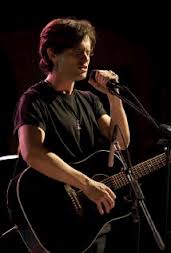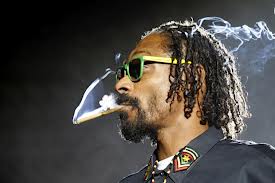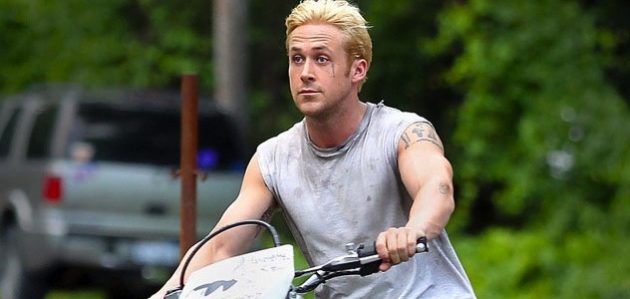I keep coming back to The Place Beyond the Pines, but it was the movie that defined the Toronto International Film Festival for me. More than once, I heard the director Derek Cianfrance describe his ambitious and moving film as a movie about "legacy" and how "sometimes you're born into a world with all of these repercussions that people have made before you" and "have to fight and claw to get out of that." Judging from the features and documentaries I saw during my short stay in Toronto, these ideas of legacy and the sins of our fathers — whether they're our literal or institutional fathers — are weighing heavily on America's collective psyche.

The Place Beyond The Pines, which Focus Features will release in 2013, is essentially about how a fateful encounter between two fathers — one a stunt motorcyclist (Ryan Gosling) who has turned to crime to support his son; the other, a cop (Bradley Cooper), who has his own daddy issues, carries over into the next generation. I'm oversimplifying the plot, a good portion of which needs to stay under wraps for optimum dramatic impact, but, in the last third of the movie, Cianfrance creates a remarkable amount of tension around the question of whether the sons of Gosling and Cooper's characters will be damned by the actions of their fathers.

Greetings doesn't deal with their deaths, though. It grapples with the much thornier aspect of Jeff's life, specifically, his struggle to shake off the weighty ghost of his father — at the post-screening Q&A I attended, Algrant said Greetings producer Fred Zollo described the story as "Hamlet" — who he barely knew but who serves as a constant reminder of all he has not accomplished. Tim Buckley had released nine studio albums, achieved critical acclaim and credibility as a political activist by the time he died. Jeff Buckley was just beginning to record his second album when he died. And yet, anyone who has heard his recordings of "Forget Her," "Lover, You Should Have Come Over" or his ethereal version of Leonard Cohen's "Hallelujah," knows that Jeff found himself. But as Algrant and, especially Badgley, reveal, the story is all in the telling.
On a more symbolic level, legacy themes ran through a number of documentaries I saw, as well, albeit it on a more meta level. If I was a statistician, I'd begin tracking membership in the Catholic church beginning with the day that Alex Gibney's provocative documentary Mea Maxima Culpa: Silence in the House of God opens because the religion and its leaders do not come off well at all. Gibney's film is about some large-scale and particularly heinous sins of the Fathers and begins with the headlines-making case of Father Lawrence Murphy, who beginning in the 1950s, is believed to have molested as many as 200 boys at the St. John’s School for the Deaf in St. Francis, Wisconsin. That case alone is heartbreaking enough but Gibney finds other hair-raising examples in Italy and Ireland as he follows the thread of his investigation all the way to the Vatican. The viewer must decide how much blame belongs on the mitre of Pope Benedict XVI, who, prior to his election to the papacy, headed the office that looked into all cases of sexual abuse, But what becomes apparent as Gibney's tale unfolds is that the Pope is not the most powerful man at the Vatican, and that the church continues to be willfully ignorant and arrogant when it comes to sexual abuse under the eaves of his parishes.

Frankly, I'm not sure I like the reggae tracks that Snoop cuts during the film better than his hip-hop work. They seem to be awfully dependent on production bells and whistles, which, I would argue, flies in the face of the organic beauty of most great reggae songs. (Look for Bunny Wailer's performance on one of the tracks and you'll see what I mean.) But I really liked that Snoop seemed to be genuinely moved by the Jamaican people he met during the film. I also like the way that director Andrew Capper connects the legacies of reggae and rap as kindred musical genres that spoke to the downtrodden and the disenfranchised, whether they lived in the Trench Town neighborhood of Kingston, Jamaica or the California city of Compton. The Slickers' "Johnny Too Bad" was gangsta long before Dogg's "Deep Cover," but Snoop Lion, as he has dubbed himself since becoming a Rastafarian, appears to have gravitated toward reggae's kinder, gentler niche. Whether it's a true transformation, or merely the case of an artist shedding his skin to sell more records, the soul-searching that takes place in Reincarnated is soul-satisfying.
Speaking of satisfying the soul, the Toronto festival was a well-run and exhilarating if exhausting, experience. I have to say that the expensiveness of the city was not. I enjoyed the hot dogs and the way that moviegoers there exclaimed "Aaaargh!" like pirates every time that the piracy warning flashed on screen, but taxis are ridiculously pricey and, despite the cost, I had a remarkable run of obnoxious drivers who insisted on dictating where they would take me and how I would pay them despite rules to the contrary. I never thought I'd say it, but Toronto cabs make New York cabs look affordable. That's just my two cents, which would definitely not get me anywhere in Toronto by taxi.
Follow Frank DiGiacomo on Twitter.
Follow Movieline on Twitter.
